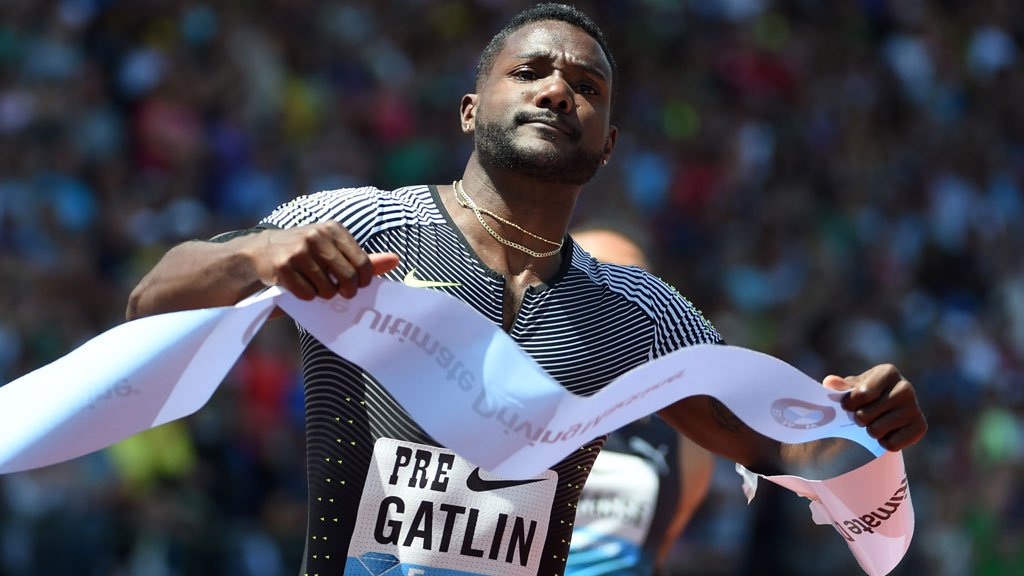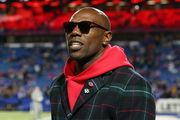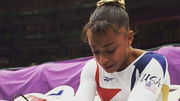
Imago
Credits: Instagram

Imago
Credits: Instagram
Achieving Olympic gold medals and World Championship titles alone doesn’t guarantee universal admiration—Justin Gatlin learned that the hard way. The American sprinter has every track title you could dream of and kept his love affair with the sport alive all the way to 40. Yet, despite his incredible resume, Gatlin never got the level of celebration or spotlight you’d expect. Why is that?
Watch What’s Trending Now!
The 2006 doping scandal definitely played a role, landing him a four-year ban and stripping him of his world record. But according to Gatlin, the real problem wasn’t just about fame, missed races, or lost titles. It hit somewhere much deeper—a wound that never quite healed even after his return to the track. What was it?
ADVERTISEMENT
Justin Gatlin reflects on the ban that affected the rest of his career
On January 9, the Run Your Race Podcast shared a clip featuring Justin Gatlin, and it was a revealing one. The former world champion opened up about the struggles he faced returning to the track after his four-year doping ban in 2010. “They’ll sit and say, well, we don’t want Justin Gatlin in our race,” the 42-year-old shared. That “they” he mentioned? Event hosts who seemed hesitant to welcome him back.
But let’s not forget—this is the sprinter who kept competing at an elite level until he was 40, a rare feat in track and field. Between 2010 and 2022, Justin Gatlin was still pushing boundaries, even going head-to-head with Usain Bolt and nearly dethroning him. So why were those years so challenging? The answer goes deeper than just racing.
Top Stories
Prayers Pour In From Terrell Owens as 275lbs Former Cowboys Player Announces Major Health News

NFL Make Final Punishment Decision on Controversial Patrick Mahomes Incident

Footage Surfaces of Florida Police Arresting NASCAR Veteran Over Disturbing Public Misbehavior

Dan Campbell Loses Faith in Locker Room After Clearing Stance on NFL Officials’ Controversial Decision

Mike Tomlin Breaks Silence on DK Metcalf Incident as Steelers WR Risks $277K Punishment

Olympic Champion Dominique Dawes Confirms Heartbreaking Outcome in Missing Family Member Search

One of the greatest Track Stars of all time, you definitely want to go listen to his incredible story‼️ New episode is out now 💯 @tpinsonn @justingatlin @_KingCozy https://t.co/h5DMijLJLU pic.twitter.com/ZeeRkmcg2q
— Run Your Race Podcast (@RunYourRaceTL) January 9, 2025
ADVERTISEMENT
After USADA handed down its judgment, Justin Gatlin’s world flipped upside down. At first, he was completely sidelined from mainstream events. Even when he started his comeback in 2010-11, small events barely offered enough prize money to cover his expenses. “And then now I’m flying to these little hole-in-the-wall races, and I’m not even making enough to even get a plane ticket back home,” Justin Gatlin admitted.
It was a tough, dark time. Justin Gatlin had no sponsors to back him, and the financial strain was real. Before the ban, he had a lucrative Nike deal—something most athletes can only dream of. But after the scandal, that support vanished, leaving him scrambling to stay afloat. “That was an issue for the rest of my career,” he confessed. Though he eventually secured sponsorships again, the criticism never let up. It was a burden he carried long after his comeback.
ADVERTISEMENT
The sponsorships came with a side of arguments
During his comeback, Justin Gatlin managed to secure two major sponsorship deals that stirred plenty of controversy. In 2012, he partnered with Chinese brand Xtep, but it was the 2015 deal with his former sponsor, Nike, that really turned heads. The Oregon-based giant welcomed Gatlin back, a move that reignited debates about his past. Was the deal enough for the Olympian? Even Gatlin had his doubts. But one thing’s for sure—it came with plenty of backlash.
Many athletes and fans couldn’t wrap their heads around Nike backing Gatlin, given his doping history. Despite his stellar track record from 2013 to 2015—when he was practically unbeatable—critics couldn’t move past his controversial past. Marlon Devonish, part of Britain’s gold-winning 2004 Olympic relay team, called the deal a “kick in the teeth to the 99% of athletes who are clean,” adding, “No, it doesn’t feel right to me.” His teammate Jason Gardener echoed the sentiment, highlighting the uneasy reception of Gatlin’s return. Now, nearly a decade later, those controversies still still haunt Justin Gatlin.
ADVERTISEMENT
ADVERTISEMENT
ADVERTISEMENT
ADVERTISEMENT

